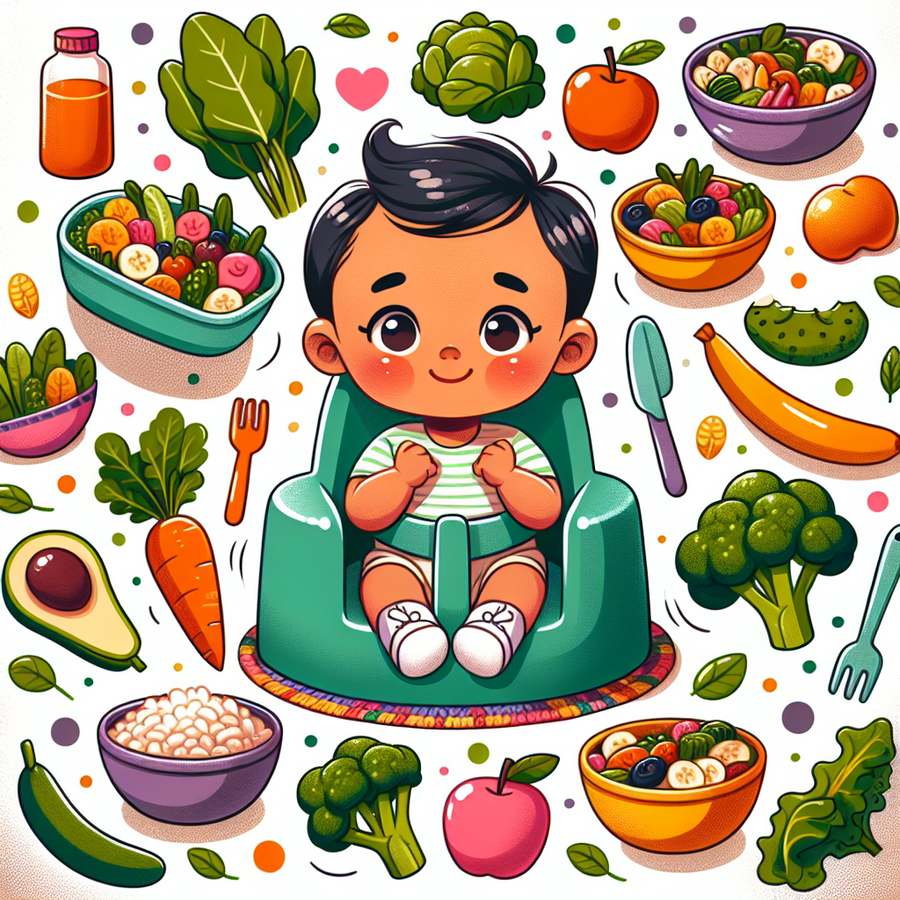Introducing a vegetarian diet to 12-months-old babies can be a delightful journey filled with colorful fruits, vegetables, and a variety of other plant-based foods. Vegetarian Diet Tips for 12-Months-Old Babies are essential for parents looking to ensure their child receives all necessary nutrients for optimal growth and development. This comprehensive guide will explore how to make this dietary transition smooth and beneficial for your little one.
Understanding Nutritional Needs
At 12 months, babies are transitioning from breast milk or formula to a more solid-food-based diet. It’s critical to understand the nutritional needs during this significant growth phase. A well-planned vegetarian diet can meet these requirements, including essential vitamins, minerals, proteins, and fats. Key nutrients include iron, calcium, vitamin D, omega-3 fatty acids, and proteins, all of which support healthy development.
For more detailed guidance on nutritional needs and how to meet them, consider reading about nutritional needs for premature babies, which also offers insights applicable to all infants.
Vegetarian Diet Tips for 12-Months-Old Babies
Creating a balanced and varied vegetarian diet for your 12-month-old is achievable with the right knowledge and resources. It’s important to include a wide array of plant-based foods to cover the spectrum of nutritional needs. Focus on incorporating iron-rich foods like fortified cereals, legumes, and green leafy vegetables. Calcium can be sourced from broccoli, fortified plant milks, and tofu. For omega-3 fatty acids, include ground flaxseed, chia seeds, and hemp seeds in their meals.
Explore creative ways to incorporate these foods into your baby’s diet with the help of creative ways to incorporate vegetables into a toddler’s diet. This can make meals not only nutritious but also enjoyable for your little one.
Sample Meal Plan Ideas
Planning meals ahead can take the stress out of ensuring your baby gets a balanced diet. Start the day with a breakfast of oatmeal mixed with mashed bananas and fortified plant milk, providing a good source of iron and calcium. For lunch, consider a lentil and vegetable purée, rich in protein and vitamins. Dinner could be a soft-cooked vegetable risotto, offering a comforting and nutritious end to the day.
For inspiration and more meal ideas, check out how to create a balanced vegetarian diet for a one-year-old. This resource can help you tailor meals to your baby’s taste preferences and nutritional needs.
Addressing Common Concerns
Parents often worry about protein intake and possible nutrient deficiencies when adopting a vegetarian diet for their babies. However, by offering a variety of whole grains, legumes, vegetables, and fruits, you can ensure a well-rounded diet. Regular pediatric check-ups and possibly incorporating supplements, under a healthcare provider’s guidance, can help address any nutritional gaps.
For families navigating dietary restrictions, such as lactose intolerance, the article on lactose intolerance in infants provides valuable insights and solutions for a smooth dietary adjustment.
Supplementing Your Baby’s Diet
While a well-planned vegetarian diet can meet most of the nutritional needs of a 12-month-old, certain nutrients like vitamin B12 and possibly vitamin D might require supplementation. Vitamin B12 is crucial for brain development and is primarily found in animal products, making supplementation important in vegetarian diets. Vitamin D supplements are often recommended for all infants to ensure optimal bone health.
Refer to Vitamin D requirements for exclusively breastfed infants to understand the importance of this nutrient and how to adequately provide it in your baby’s diet.
Conclusion
Implementing Vegetarian Diet Tips for 12-Months-Old Babies can lead to a fulfilling and nutritionally complete dietary journey for your child. By focusing on a variety of whole, plant-based foods and being mindful of crucial nutrients, you can lay a strong foundation for your baby’s health and well-being. Always consult with a pediatrician or a dietitian specialized in pediatric nutrition to tailor dietary choices to your baby’s specific needs and for personalized advice.
For further reading on vegetarian diets and baby nutrition, the nutritional considerations for vegan infants and toddlers offers an extended guide for parents exploring plant-based diets beyond the first year.













